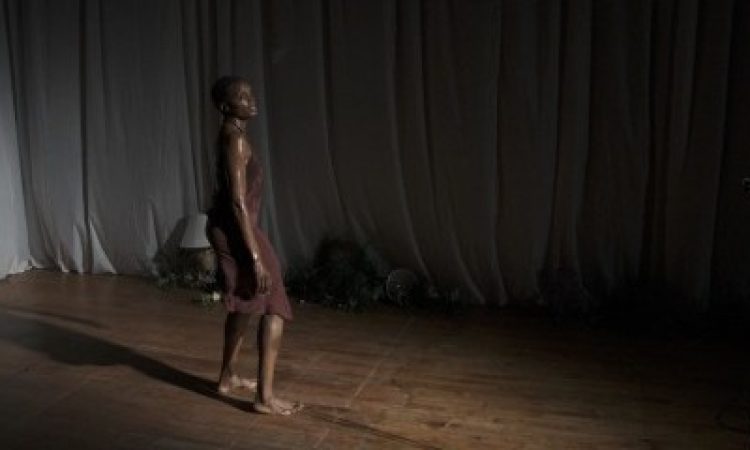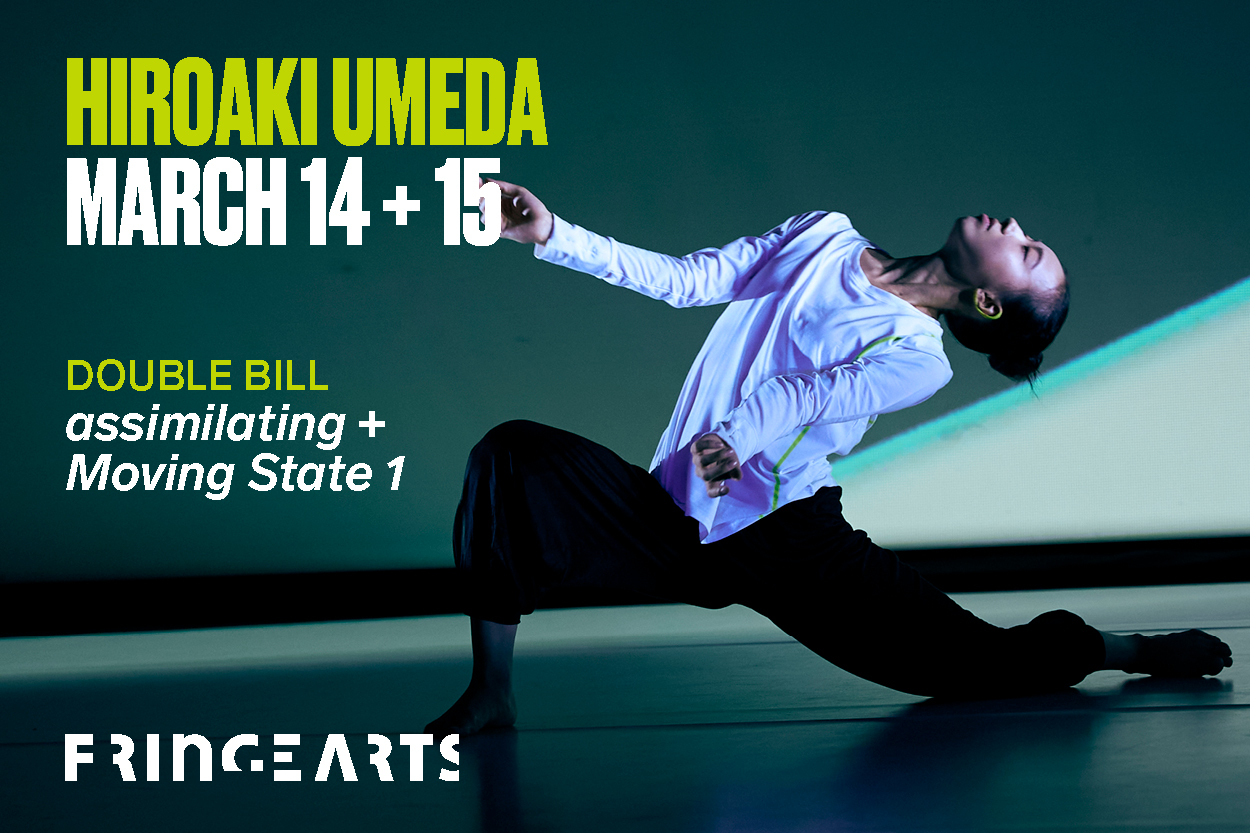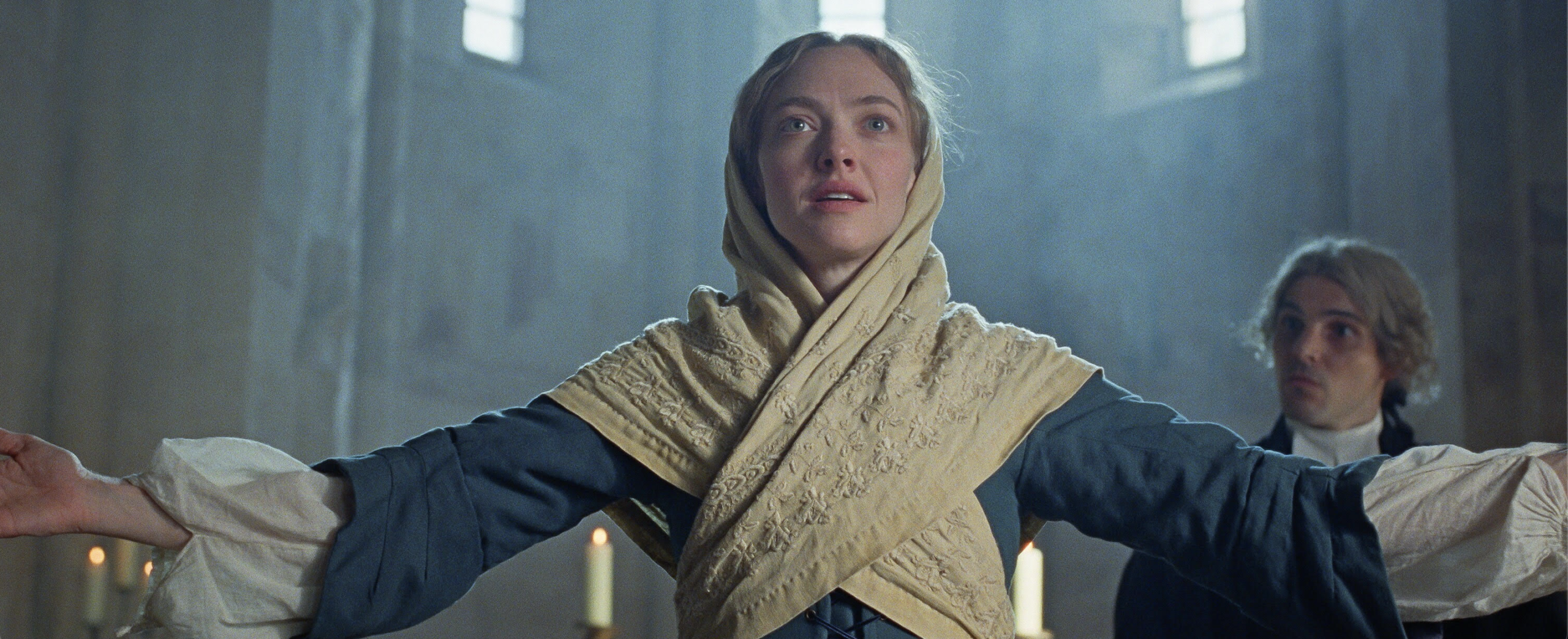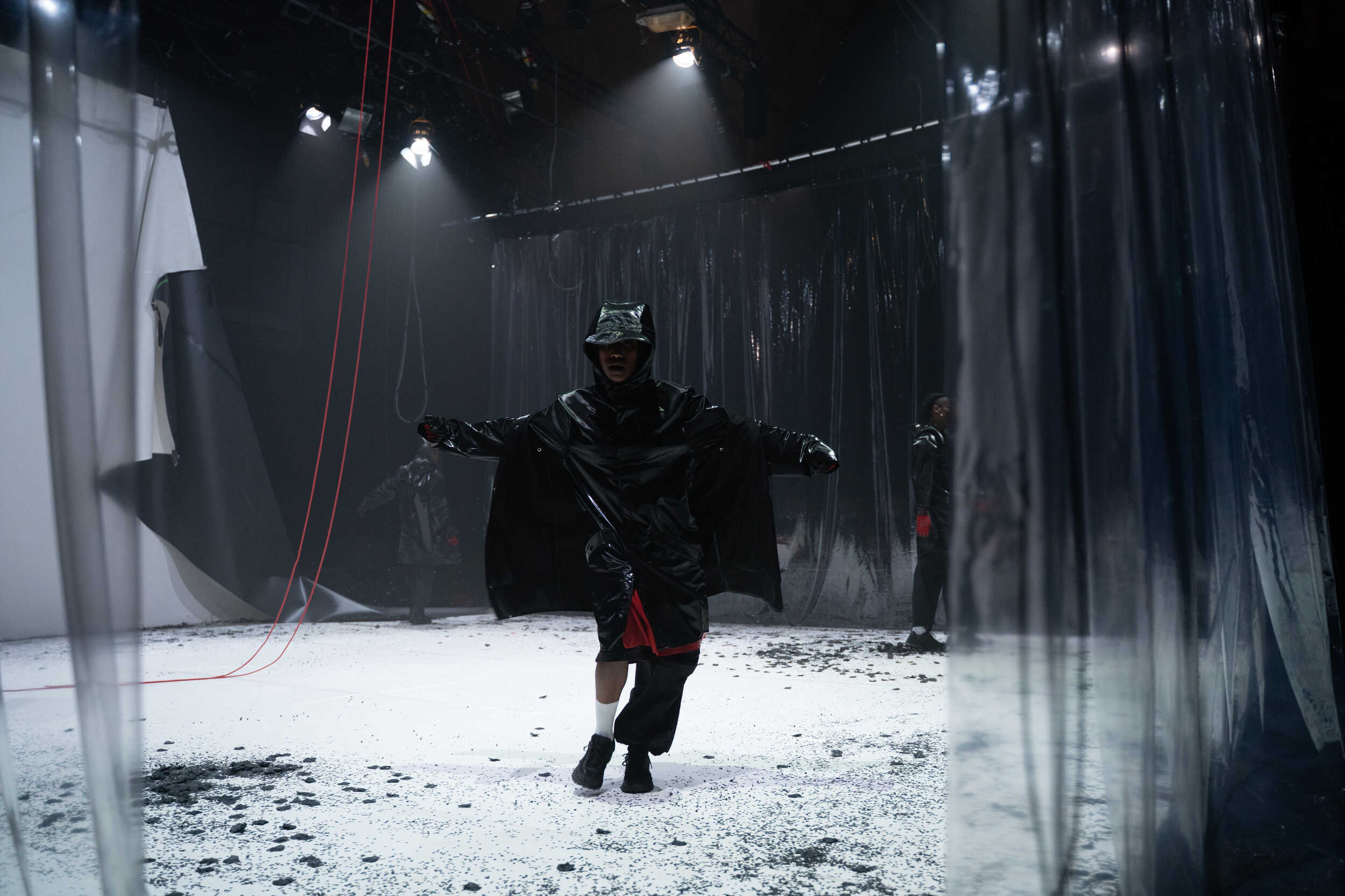Okwui Okpokwasili’s one-woman dance-theater show premiered in the COIL Festival in New York in 2014 and then went on to win awards and wide acclaim during its extensive touring life. Filmmaker Andrew Rossi has made a documentary of the same name, Bronx Gothic, and includes long sections of the original work (including footage from its engagement at FringeArts last year), as well as a sketch of its creator. The stage work Bronx Gothic was a coming-of-age tale; Okpokwasili drew on her own history of feeling invisible, growing up in the Bronx, to create a stunning glimpse of “the pleasure and pain of a brown girl,” as she states in the film. She aims for “mutual transformation” between herself and the audience, and says that “making performances keeps me alive.” (Read Kirsten Kaschock’s striking review of the original work.)
The following impressions are still with me a week after seeing the film. Fragments are appropriate because I felt shattered by the movie—broken apart.
* At one point in the film, Okpokwasili is describing how brown people rarely “have the privilege of bliss” when they are portrayed in the media. The woman in front of me, dark-skinned, nods in recognition. She discreetly takes out her cell phone to take a picture, marking the moment for herself. “You create a persona to protect yourself,” Okpokwasili explains. The woman’s friend sitting next to her reaches an arm around her, the two comforting each other. Pleasure and pain on the screen and a few inches away.
* I’m happy to see Ralph Lemon, listed as Okpokwasili’s mentor and friend, and one of the few people other than she to tell her story in this film. Lemon claims that everything changed for Okpokwasili the day she became a mother, that all of a sudden her multiplicities became coherent. I am skeptical, but perhaps this is only born of a personal insecurity. I may not ever be a mother. I may have to find another route to make my multiplicities suddenly coherent and I don’t know what that would be.
* I’m very conscious of my body while watching Bronx Gothic. I am rustling and snuffling, eating popcorn, and crying and writing. I didn’t plan on writing about the film, but decide early on that I want to, and am constantly trying to find blank spots in my notebook, in the dark, as a result. Guided by Okpokwasili’s voice and instructions, I feel my teeth with my tongue. I am awake. I am awake in this theater. I am sobbing and eating and writing and watching and I am awake and it’s not enough.
* There’s a scene with her parents, where they watch footage of the stage performance. They haven’t seen the show and aren’t sure they want to. Rossi encourages them to watch the first part, in which Okpokwasili vibrates intensely for many minutes while the audience enters and thereafter. In the documentary scene, she hovers behind them, nervously gauging their reaction. When it comes, it is perfectly parental. They are concerned for her physical safety, her father inquiring if the theaters have a doctor on hand if needed, and her mother declaring the movement “too strenuous.” I think of how many artists have this conversation with their parents: trying to explain what they do and why it matters.
* The life of this artist looks like the life of artists that I know, but that I rarely see faithfully portrayed. A lot of traveling. A home with joy and vibrancy. Connecting with strangers in this intense, transitory way. Calling forth the parts of themselves that are hardest to get at, and then doing it again and again, night after night, even when they don’t want to. It strikes me anew how much we expect these people to do; in addition to making and performing a piece, we ask them to calmly and articulately discuss it.
* My experience is layered, watching there in the dark at New York’s Film Forum. I remember seeing a showing of a work-in-progress at Wesleyan, where I would swear that Okpokwasili opened the door to a spirit realm, her presence seemingly capable of causing paranormal phenomena. I remember seeing Bronx Gothic at Fringe a year and a half ago. The show was sold out and I was sitting in the back row, crammed between a friend and a stranger. My legs touching both of their legs and all of us sweating. The most intimate show I had been to in a long time.
* I now want all dances of this significance to get their own documentaries. It feels like a divine luxury to re-visit this work with the artist as a guide.
* I emerged from the theater dazed, thinking “this is the greatest dance film I’ve ever seen.” Maybe it just hit me at the right time, at a vulnerable moment. It’s possible. Other reviewers don’t seem to agree with me.
But I’d suggest you see it for yourself. If you saw the original work, it’s a rare opportunity to live in it again. And if you didn’t get to see the original, now you have an amazing chance to see it in a different, fierce, and compelling incarnation.
Bronx Gothic, Grasshopper Film, in limited release, grasshopperfilm.com/film/bronx-gothic/.






